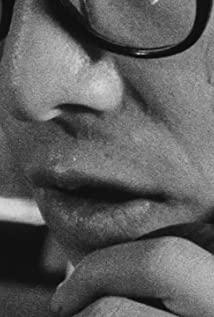This film should be the most simile in Imamura's film and the whole story is constructing-deconstructing-constructing-deconstructing the relationship and connection between humans and animals. In the film, the conversation that the fishing friends under the mountain are telling him and the audience about the breeding method of eel can be said to be a naked reveal. The female eel swims thousands of kilometers away near the equator to receive sperm that is not known which male eel discharges in the water. After fertilization, the female eel will become pregnant and lay eggs, and the born young will not know who their father is. The sex of the eel is restricted by the environment. When the food is insufficient and the population density is high, the eel becomes male, and when the food is sufficient and the density is low, it becomes female. This "knowledge point" completely corresponds to the behavior of Yamashita to recognize the children in Guizi's belly out of protection of Guizi and self-reconciliation. The other purpose of the eel is to eliminate the rejection and distrust of people at the foot of the mountain through the raising and talking of the eel. He believes that eel is the only true listener. In his heart, everyone is "inferior to beasts". After encountering the murder caused by his wife's embarrassment, jealousy and trampling on dignity, he was completely disappointed in people. While rejecting people, Yamashita also burst out more animalism, which is a way of self-selection and self-protection. As a result, he became an alien in the eyes of ordinary people, and his animalistic release allowed him to finally agree with the behavior of the eel.
Guizi chose to take medicine to commit suicide because she couldn't stand her bad boyfriend and her mentally ill mother. This behavior of death instinct is also animalistic. It was a good result for two people who released animality to come together. Guizi was pregnant with her boyfriend's child, which was confirmed in Guizi's nightmare of having sex with her boyfriend. But the boyfriend's use of his mother and cheating for money made Guizi intolerable. At the same time, Guizi's mother who owed a huge debt also made Guizi's head burned. Guizi originally planned to be the mistress of the creditor, so that the debt can be written off. But in the end, Guizi, who insisted on himself, secretly took the passbook cheated by her boyfriend to pay off the debt. When the boyfriend and accomplice who found the barbershop threatened to beat Yamashita, Guizi told the fact that he was pregnant, and Yamashita volunteered to become the pot man. Imamura's rare infusion of sunshine into the ending of the film, the two people who have been tortured by life finally reconcile with themselves in order to protect each other. Yamashita was sent to jail again for hurting others, but unlike the previous imprisonment, Guizi was willing to wait for him, willing to give birth to a child who did not belong to him. You must know that Guizi tried to kill the child, but under the persuasion of the doctor and the persuasion of Shanxia, she gave up. Guizi had been on the bridge before trying to pass the bento under the mountain where the boat had fished and returned home, but the mountain had never been led. This is an act of rejecting humanity and affection. At that time, there were only eels as company at the foot of the mountain, and I only hoped to have eels as company. In the end, the eel was released at the foot of the mountain, and Guizi's bento was taken. His humanity slowly recovered, and he saw the existence of people again, so he would protect Guizi. He reconciled with himself and tried to embrace himself and others. Guizi became the eel, and Yamashita became the eel, hermaphrodite, and one.
The fish tank and fish scenes in the film have already been used in "Introduction to Anthropology". But the surreal scenes of falling into and running in the fish tank under the mountain are quite imaginative. The letter sent to himself exposing his wife's affair was evidence of his jealousy, and the inmates' disclosure of his past was also jealous. The cellmates envied him for opening a barber shop, envied him living with a woman, and even attempted to rape Guizi. Later, the arguing and fighting between inmates and Yamashita in the barbershop were unconscious behaviors under extreme sexual repression. Sex is the driving force for the behavior of the characters in Imamura's films, and it is also the same in this film.
View more about The Eel reviews











